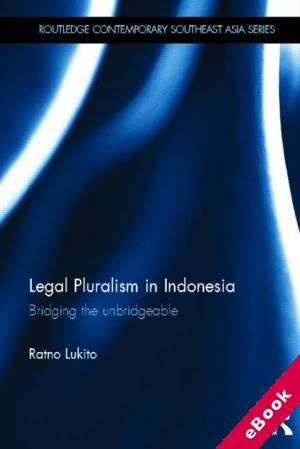We will be closed from 5pm Thursday 17th April for the Easter Bank Holidays, re-opening at 8.30am on Tuesday 22nd April. Any orders placed during this period will be processed when we re-open.

The device(s) you use to access the eBook content must be authorized with an Adobe ID before you download the product otherwise it will fail to register correctly.
For further information see https://www.wildy.com/ebook-formats
Once the order is confirmed an automated e-mail will be sent to you to allow you to download the eBook.
All eBooks are supplied firm sale and cannot be returned. If you believe there is a fault with your eBook then contact us on ebooks@wildy.com and we will help in resolving the issue. This does not affect your statutory rights.
With the revival of Islamic law and adat (customary) law in the country, this book investigates the history and phenomenon of legal pluralism in Indonesia. It looks at how the ideal of modernity in Indonesia has been characterized by a state-driven effort in the post-colonial era to make the institution of law an inseparable part of national development. Focusing on the aspects of political and 'conflictual' domains of legal pluralism in Indonesia, the book discusses the understanding of the state's attitude and behaviour towards the three largest legal traditions currently operative in the society: adat law, Islamic law and civil law.
The first aspect is addressed by looking at how the state specifically deals with Islamic law and adat law, while the second is analysed in terms of actual cases of private interpersonal law, such as interfaith marriage, interfaith inheritance and gendered inheritance. The book goes on to look at how socio-political factors have influenced the relations between state and non-state laws, and how the state's strategy of accommodation of legal pluralism has in fact largely depended on the extent to which those legal traditions have been able to conform to national ideology. It is a useful contribution for students and scholars of Asian Studies and Law.